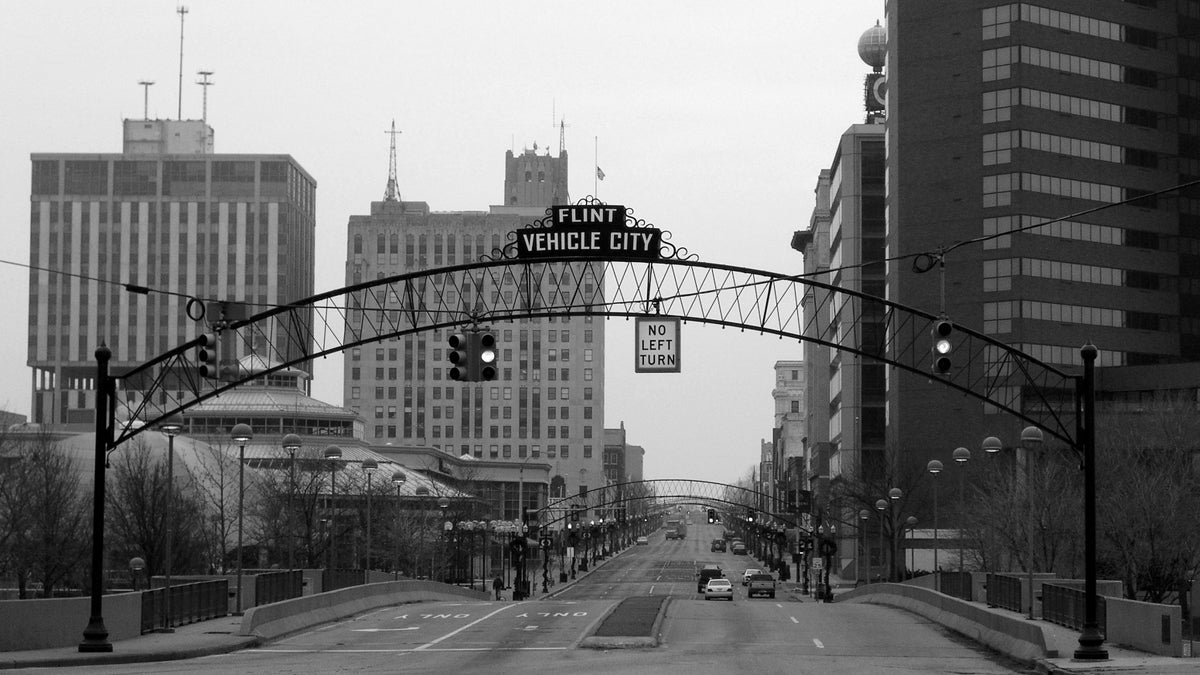Professor George Pomeroy on traffic circles, micro-landscaping and Michael Moore

Shippensburg University's Center for Land Use Director George Pomeroy says documentary "Roger & Me" "provocatively captures" how a city - in this case
George Pomeroy heads the Center for Land Use at Shippensburg University, where he’s also a professor of geography and earth science.
“Five Questions with …” is a regular Keystone Crossroads feature where we seek to glean wisdom and ideas from some of Pennsylvania’s top urban thinkers and doers. George Pomeroy heads the Center for Land Use at Shippensburg University, where he’s also a professor of geography and earth science.
Q: Tell us about an amenity or service that you’ve seen in your travels to other places that you wish you could bring back to your community.
A: Turning circles! In many, many places they work very well to facilitate traffic flow and reduce the number and severity of accidents.
And in the state of Washington, when public facilities are built, there is a requirement that so much of the capital budget is devoted to public art and landscaping. This leads to improved public spaces, where people like to live, shop, and enjoy these higher quality spaces. These “micro-landscapes” become a source of pride.
Q: What’s one urban improvement idea that you could categorize as “nice try but didn’t work”?
A: One example of this immediately jumps to mind: Inventure Place in Akron, Ohio. While living there as a student, I watched this disaster unfold.
It housed the National Inventors Hall of Fame (NIHF). In part intended as a science and technology museum, it was also envisioned as a tourist draw. Boosters saw it as an ideal stop for tourists in between the Pro Football Hall of Fame in Canton and the Rock n’ Roll Hall of Fame in Cleveland. “Hall of Fame Row,” so to speak.
Inventure Place, completed and opened to the public in 1995 at a cost of $38 million, featured a stainless steel exterior and numerous interactive exhibits. But attendance was poor from the start and declined in future years, driving revenues far below expectations. It lost $25 million during 1994 through 2008.
In 2009, the NIHF relocated to Arlington, and the building was converted to a STEM magnet school.
Q: Describe a person in your community who is a “spark” — someone who seems to get things done and inspire people.
A: Former Cumberland County Commissioner Rick Rovegno serves as a leader across several issues both locally and regionally. He works exceptionally hard and engages expertise. Most importantly, he has a doggedly determined character and often wills things to be accomplished. He puts his money where his mouth is.
Q: What flaw or habit does your community have that you would like to see it change?
A: Our system of local government is “super local” and has the potential to be very grassroots; indeed, potentially very democratic! Unfortunately, it isn’t well suited to dealing with regional issues that transcend political boundaries. This is complicated when local elected officials in one municipality distrust, hold grudges against, or simply feel competitive with neighboring communities. What I would like to see is a greater willingness of local elected officials, administrators, residents, and other stakeholders to collaboratively address regional issues by working with their counterparts in neighboring communities.
Q: Tell us about a movie or book that depicts, in a way that grabbed your attention, how a city can thrive or fail.
A: Michael Moore’s first documentary, “Roger & Me,” provocatively captures how a city – in this case, Flint, Michigan can spiral downwards and fail and when its leading industry declines. Moore shows how many of the city’s “rescue efforts” or revitalization initiatives were misguided (an automobile heritage museum), demonstrated poor judgment, or simply reflected wishful thinking (evangelically-bent motivational speakers).
Is there someone you know who thinks hard about cities and knows how to get things done? Someone whom Keystone Crossroads should spend “Five Questions with …” Please let us know in the comment sections below or via Facebook or Twitter @Pacrossroads.
WHYY is your source for fact-based, in-depth journalism and information. As a nonprofit organization, we rely on financial support from readers like you. Please give today.



